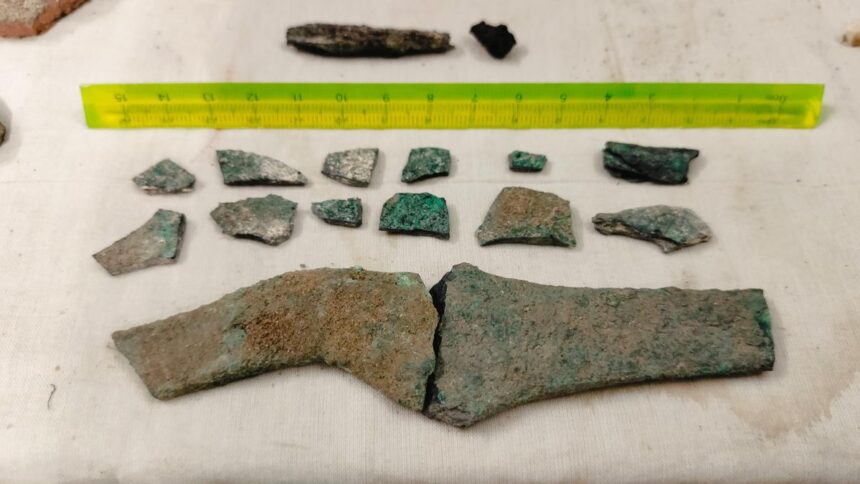A section of Aurovilians and the township administration are at daggers drawn over a plan to site the proposed sustainability campus of the IIT-Madras on agricultural lands of Annapurna Farm, which is one of the sources of food supply to the residents.
While a group of residents has raised alarm over the “imminent destruction” of the four decade-old farm in the wake of the Auroville Foundation governing board’s decision to hand over 100 acres of farm land for the project, Auroville Foundation dismissed the claims as “alarmist and misleading narratives to obstruct city-building works by a small but vocal group that over the past four years has repeatedly circulated – first on roads and infrastructure, then on land exchanges, and now on Annapurna”.
A statement from the media wing of the ‘Working Committee of the Residents Assembly’ (an entity deemed unauthorised by Auroville authorities), said the move follows a pattern of unilateral decision-making by the current Auroville administration that has consistently sidelined community voices and expertise since July 2021.
The proposed project alienates land that was donated for this fundamental purpose, and represents a diversion and complete disregard for the principle that Auroville residents should be integral participants in major decisions affecting their community, the statement said.
“We support research into sustainable technologies and we welcome any potential collaboration with Institutions of excellence like the IIT-M. However, the destruction of a thriving organic farm to build a test track for heavy vehicles, EV or otherwise, represents exactly the kind of short-sighted planning that Auroville was created to transcend,” it stated.
However, the Foundation, which said that there was no approved plan for an EV truck test track on the farm, cited assessments that showed effective cultivation was confined to about 30 acres of the 135 acres. The rest of the land is projected as used for something or the other related to the farm, but this is an ineffective and extremely luxurious use of precious land. Additionally, balance sheets show that the farm runs on consistent losses, and sustains itself on donations, in the best of cases, it said.
Opponents of the plan say managers of the Annapurna farm were only notified via email on August 13, with no prior consultation with the farm managers or the Auroville community. They also countered the claim that Annapurna used only 35 acres as it ignored the complex ecosystem that is necessary for organic farming, which includes 20 acres of paddy, 25 acres of fodder/biomass plantations, 30 acres for animal grazing and 38 acres of forest buffers.
The Foundation, however, cited farm audits to portray a different story. Across all Auroville farms (not just Annapurna) spanning hundreds of acres, current output meets less than 12% of the food needs of the about 2,800 residents, it said.
Auroville is in the process of consolidating agriculture inside the Master Plan’s Green Belt to lower food miles (Annapurna is located at a distance of over 10 km from the centre), reduce lifecycle emissions, and achieve outcome-focused food security, the Foundation said. “Stewardship by very few individuals over very large tracts has historically limited community-scale optimisation”.
Utilising the 100 acres of Annapurna (outside the Master Plan) for an IIT-led sustainability-focused campus will catalyse regional opportunities — education, research, employment — while Auroville upgrades and concentrates on farming closer to the city, consistent with the Mother’s original idea and intent behind having a Green Belt surrounding the City of Auroville, it added.
“That the authorities scheduled a discussion with Annapurna managers only on August 18 typifies a fait accompli approach to decision-making,” a resident said.
While critics of the proposal appealed to the Governing Board to reverse the decision and engage in consultation even as a ‘Save Annapurna Farm’ campaign has been launched, the Foundation says the transition from land-holding to outcome-focused agriculture has been endorsed by the Working Groups, comprising Auroville residents.
All Aurovilians, newcomers and volunteers currently working at Annapurna will be encouraged to migrate to farms in Auroville Green Belt farms as part of the managed transition, it added.
Published – August 20, 2025 07:03 pm IST
















